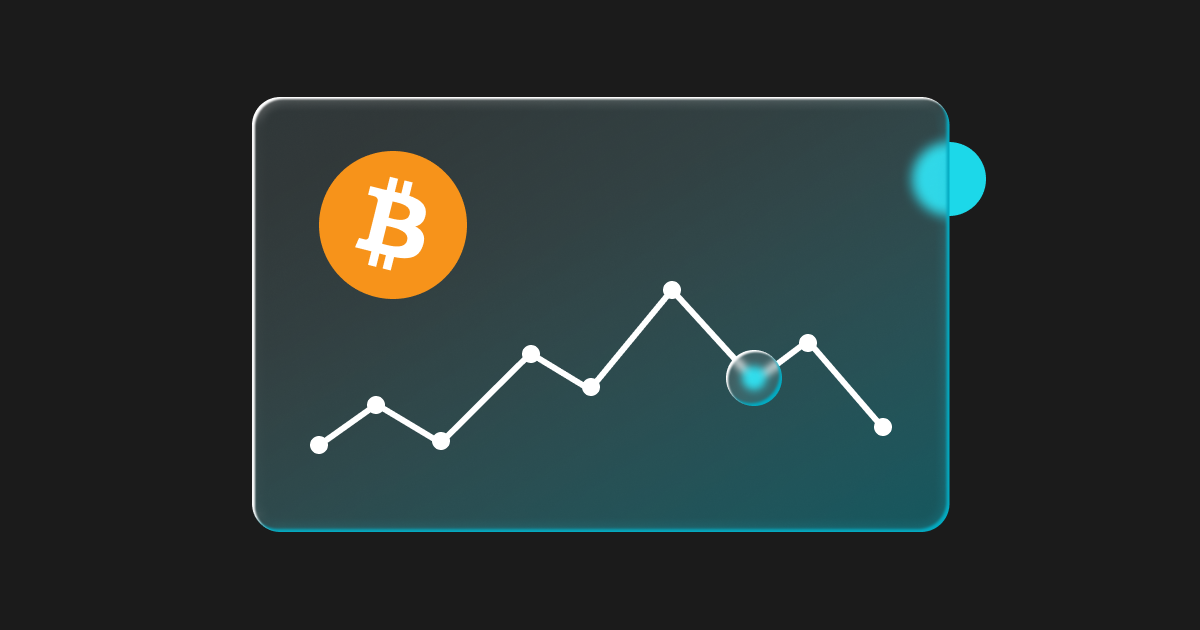Monad Madness Bangkok 7 Winning Projects Overview
The new project in the Monad ecosystem revolves around the themes of gaming and social interaction, and these "closer to the user" projects also reflect the true demand of the current market.
Original Title: "Monad Madness Bangkok Winners Announced, a Quick Look at 7 Award-Winning Projects"
Original Source: DeepTech TechFlow

Yesterday, Monad and Paradigm announced the final list of winners for the Monad Madness Bangkok startup pitch competition held in Bangkok. The 7 winning projects are: RareBetSports, Kizzy, Sparkball, Dusted, Pulse, Mozi, Jigsaw.
Let's take a look at the award-winning projects and see what excellent new ideas Monad Madness has brought this time.

1st Place: RareBetSports - On-chain Sports Culture Competitive Entertainment Platform
RareBetSports is an on-chain decentralized sports competition platform that mainly offers core services such as Daily Fantasy Sports and traditional sports betting gameplay.
In terms of technology architecture, RareBetSports is deployed on Monad and utilizes smart contracts to automatically validate match results and distribute rewards. The platform supports over 10 sports, including football and basketball, and users can participate in investments using cryptocurrencies like USDC.
The platform's unique feature, the RareLink system, allows users to select athlete combinations based on their own analysis to participate in competitions. In the Daily Fantasy Sports (DFS) mode, users need to build a virtual team within a budget limit and earn points and rewards based on the selected athletes' performance in actual games.
Currently, RareBetSports is developed and operated by a 10-person team spanning 4 countries and 5 cities, and the project is in the early access application stage.

2nd Place: Kizzy - Mobile-Centric Social Platform
Kizzy is a Web3 social competitive entertainment platform focused on mobile devices, where users can engage in competitions with creators and influencers from major social platforms within the app.
Core Innovation
Kizzy's distinctive feature lies in combining social elements with competitive gameplay. The platform has designed a customized event system that supports various gaming types, equipped with real-time odds calculation engine and risk management system.
The market logic engine is responsible for handling market creation, management, and dynamic odds adjustment, ensuring market stability through multidimensional data analysis. Users can quickly participate in various market activities through the mobile interface, with support for offline access and real-time notifications.
Technical Architecture
The Kizzy platform uses NextJS to build the frontend interface, providing a mobile-like experience through PWA technology. The backend is developed using NodeJS, utilizing PostgreSQL and Prisma to handle transactional data, while integrating a NoSQL database to address high-concurrency scenarios.
Kizzy's technical highlight is the practical fully vertically integrated architecture, which achieves deep customization from the oracle to market logic, and then to the user interaction layer. Of particular note is its self-developed oracle system, which differs from traditional competitive platforms relying on third-party oracles like Chainlink. Kizzy's solution can more flexibly adapt to different types of gaming markets.
Currently, Kizzy is in the product iteration stage, with a focus on technical research and development, continuously optimizing platform performance and user experience. While ensuring compliance, the platform has chosen to expand its business into Web3-friendly markets.

Third Place: Sparkball - 4V4 Sports Combat Game
Sparkball is a 4v4 MOBA-style competitive game developed by Opti Games. The core innovation of the game lies in combining ball sports with combat elements, where players need to score by controlling the ball and engaging in combat to reach the opponent's goal. The game adopts the MOBA team battle mode of "League of Legends" while incorporating sports competitive features similar to "Rocket League." What sets Sparkball apart is that it does not deliberately emphasize Web3 attributes but rather focuses on creating a high-quality gaming experience.
In terms of development progress, Sparkball plans to kick off Season Zero testing on November 21, 2024, with the full version expected to launch in the second quarter of 2025. Recently, Sparkball has also introduced Chog (a type of Monad animal) as a game character.
Sparkball has currently received a $2 million investment from L1D and CMS Holdings, and has established a strategic partnership with the Web3 gaming distribution platform MON Protocol.

Community Award: Dusted, Pulse, Mozi
1. Dusted, Tokenized Social Protocol on Monad
Dusted is a social platform built on Monad, with its core feature being the creation of tokenized chat rooms through the CommunityFi mechanism. The platform utilizes smart contracts for community governance, allowing token holders to participate in rule-making, content moderation, and feature voting.
Dusted chose Monad as the underlying blockchain primarily due to its advantages in transaction processing speed and scalability. The project features a modular design, including components such as a token gating system, decentralized identity authentication (DID), and cross-chain bridging. Additionally, Dusted implements a dual-layer governance structure: DAO governance at the protocol level, responsible for major upgrade decisions and parameter adjustments, and community-level governance granting token holders governance rights over their respective closed communities.
A notable concept introduced by the project is the CommunityFi model. This model quantifies community contributions in a tokenized manner, transforming user behaviors that are difficult to measure on traditional social platforms into on-chain verifiable proof of value.
In terms of use cases, Dusted primarily targets three user groups:
1. Content creators can issue community tokens to build a tokenized fan economy.
2. NFT projects can create proof-of-stake-based exclusive communities.
3. Web3 projects can utilize the protocol to establish decentralized governance communities.
The project is currently in the early whitelist registration stage, and more information is yet to be officially announced.

2. Pulse, On-chain Vital Data, Monetizing Health Value
PULSE (Pulse No Limits) integrates blockchain technology with wearable health devices. The core product of the project is the Pulse One wearable device, which has physiological data collection capabilities, including monitoring indicators such as heart rate, blood oxygen, and activity levels. It features wireless charging, a 5-day battery life, and an embedded digital wallet function.
PULSE adopts a three-layer design architecture involving hardware, software, and on-chain technology. The hardware layer is responsible for data collection; the middle software layer leverages digital twin technology to integrate wearable device data with electronic health records and provide AI analysis capabilities; and the bottom layer is also built on Monad, handling data encryption storage and access control. Through decentralized on-chain technology, PULSE achieves data sovereignty and controllable sharing of health data. Users own full data ownership and can independently decide whether to share data with research institutions or healthcare organizations. Users sharing data will receive token incentives, forming a data value exchange mechanism.

Currently, PULSE has completed a $1.8 million seed round financing, with investors including Lemniscap and Collab Currency. The project plans to launch its product in the first quarter of 2025 and is working to establish a data-sharing ecosystem.
PULSE's application scenarios include personal health management, medical research data collection, clinical data analysis, and the construction of a decentralized medical database. The project uses blockchain technology to address issues such as ownership disputes and sharing restrictions faced by traditional medical data, providing a new solution for the collection, storage, sharing, and application of health data.

3. Mozi, DeFi Combining PvP and Liquidity Management
Mozi is an innovative DeFi project built on Monad. Mozi defines itself as the first PvPfi (Player vs. Player Finance) project on Monad, with a core feature that combines the PvP financial mechanism with the LST mechanism for game battles and earnings. The entire project architecture revolves around the Vault system, which is responsible for securely managing user LST assets and intelligently distinguishing between Yield and earnings, achieving automatic yield reinvestment.
In terms of yield management, Mozi has designed a Leverage Yield mechanism, allowing users to temporarily leverage Yield to increase available earnings in the game. This design ensures that users can access more game participation opportunities and maintains overall stake earnings stability through a strict risk control mechanism.
The game system is another highlight of Mozi. The project has developed a multiplayer battle game based on LST, ensuring game fairness through on-chain randomness. The earnings players receive in the game are directly tied to their stake earnings, creating a positive incentive loop.
Mozi adopts an automated treasury management system, ensuring asset security through smart contracts, with a fully transparent profit distribution mechanism and a verifiable randomness system. These technological features together build a secure and reliable DeFi gaming platform.
Mozi's greatest innovation lies in successfully integrating LST in DeFi with a gamified scenario, allowing users to not only enjoy staking rewards but also earn additional rewards through game participation. The design philosophy of the entire system has always revolved around lowering the user entry barrier, transforming complex DeFi operations into an intuitive gaming experience.

Simultaneous Group Selection Award: Jigsaw - A Collateralized DeFi Protocol
Jigsaw is a DeFi protocol based on the concept of collateralized assets, with its main product being the stablecoin jUSD issued through the CDP mechanism. The core innovation of the protocol lies in the dynamic collateral mechanism, where users can continue managing their assets after depositing collateral, including whitelisted protocol transfers and collateral allocation.
Technologically, Jigsaw employs a modular design, separating collateral management, stablecoin issuance, and revenue strategies. Smart contracts ensure the secure transfer of collateral between different protocols, while an oracle monitors collateral ratios in real time. The system has multiple layers of risk control measures, including minimum collateral ratios, liquidation triggers, and emergency halts. Additionally, Jigsaw introduces a collateral revenue distribution mechanism. User-generated revenue is automatically distributed according to a predefined ratio, with a portion used to maintain system stability and the rest returned to users, aiming to strike a balance between user incentives and protocol security.

Conclusion
From the details of this award, it can be seen that the new projects in the Monad ecosystem revolve around themes of gaming and social interaction, reflecting the real needs of the current market. With the bull market approaching, the hot money in the market is becoming more aggressive, requiring projects that can quickly and easily attract funds and attention from users. The Monad ecosystem is keenly aware of this trend and is quite timely in its understanding of market demand. As the market environment continues to evolve, we look forward to the next edition of Monad Madness bringing more interesting creative projects.
Disclaimer: The content of this article solely reflects the author's opinion and does not represent the platform in any capacity. This article is not intended to serve as a reference for making investment decisions.
You may also like
Wall Street is suffering a stinky meltdown while Fartcoin is up 30%

Analyst Predicts SOL to Outperform Bitcoin in Growth Race: Solana Rising?
Despite Q1 Underperformance, Analysts Remain Bullish on SOL's Growth Prospects Compared to BTC

Robert Kiyosaki Sees Pain Ahead: Millions Face Job Losses as Trump and Musk Slash to Save US Dollar
New spot margin trading pair — PAXG/USDT!
